Jianzhang Zheng
Autoencoders with Intrinsic Dimension Constraints for Learning Low Dimensional Image Representations
Apr 16, 2023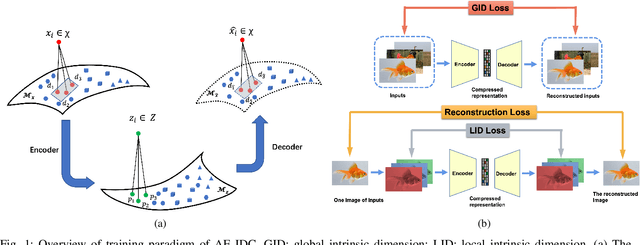
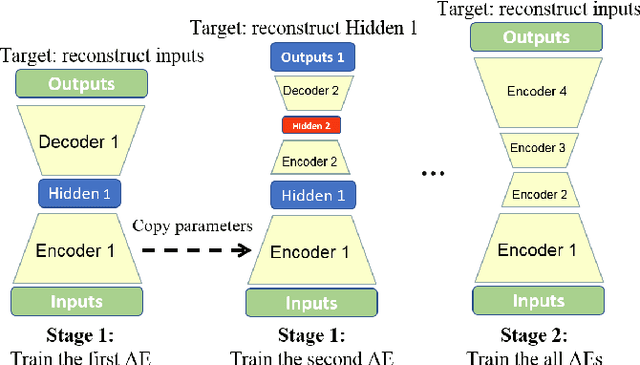
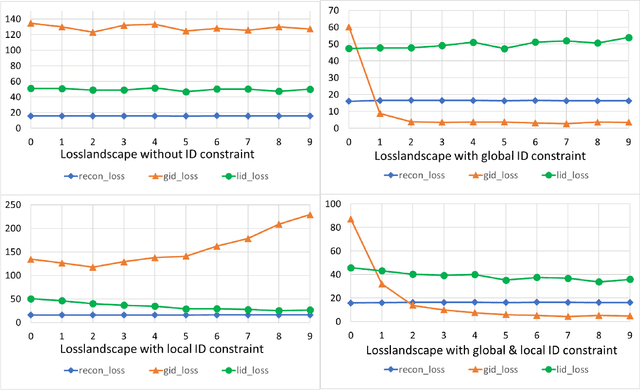
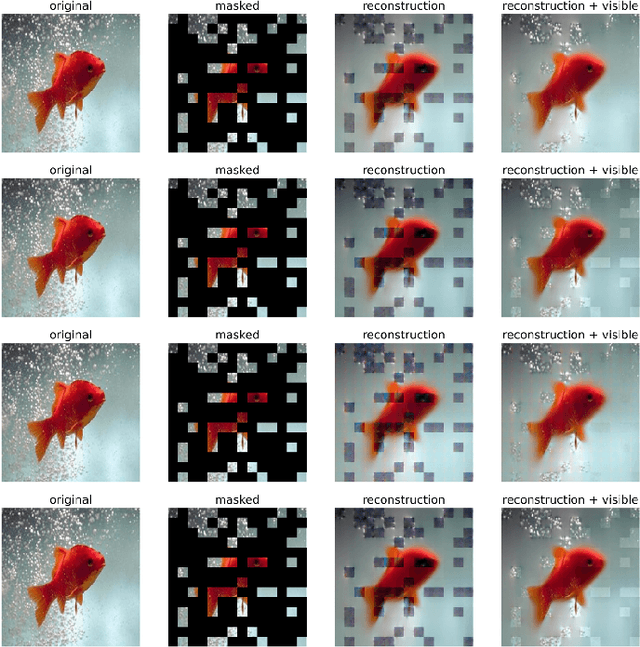
Abstract:Autoencoders have achieved great success in various computer vision applications. The autoencoder learns appropriate low dimensional image representations through the self-supervised paradigm, i.e., reconstruction. Existing studies mainly focus on the minimizing the reconstruction error on pixel level of image, while ignoring the preservation of Intrinsic Dimension (ID), which is a fundamental geometric property of data representations in Deep Neural Networks (DNNs). Motivated by the important role of ID, in this paper, we propose a novel deep representation learning approach with autoencoder, which incorporates regularization of the global and local ID constraints into the reconstruction of data representations. This approach not only preserves the global manifold structure of the whole dataset, but also maintains the local manifold structure of the feature maps of each point, which makes the learned low-dimensional features more discriminant and improves the performance of the downstream algorithms. To our best knowledge, existing works are rare and limited on exploiting both global and local ID invariant properties on the regularization of autoencoders. Numerical experimental results on benchmark datasets (Extended Yale B, Caltech101 and ImageNet) show that the resulting regularized learning models achieve better discriminative representations for downstream tasks including image classification and clustering.
Learning from Attacks: Attacking Variational Autoencoder for Improving Image Classification
Mar 11, 2022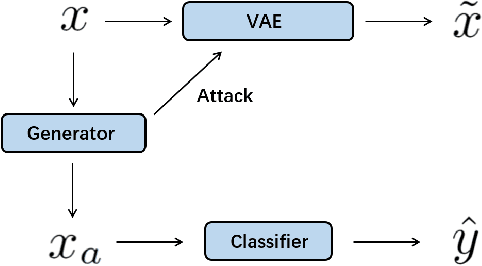
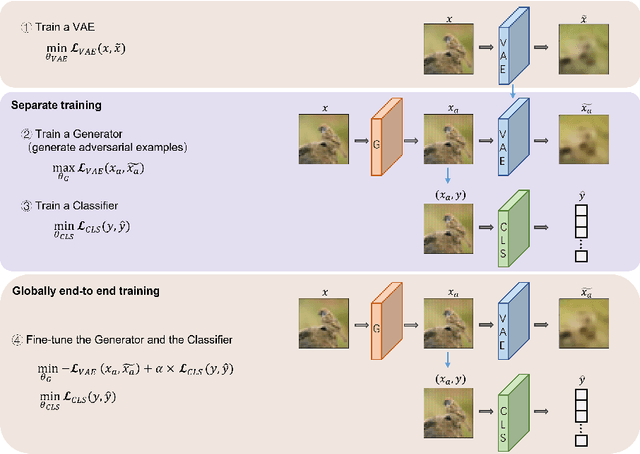

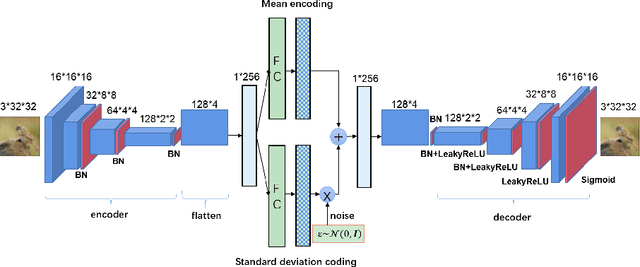
Abstract:Adversarial attacks are often considered as threats to the robustness of Deep Neural Networks (DNNs). Various defending techniques have been developed to mitigate the potential negative impact of adversarial attacks against task predictions. This work analyzes adversarial attacks from a different perspective. Namely, adversarial examples contain implicit information that is useful to the predictions i.e., image classification, and treat the adversarial attacks against DNNs for data self-expression as extracted abstract representations that are capable of facilitating specific learning tasks. We propose an algorithmic framework that leverages the advantages of the DNNs for data self-expression and task-specific predictions, to improve image classification. The framework jointly learns a DNN for attacking Variational Autoencoder (VAE) networks and a DNN for classification, coined as Attacking VAE for Improve Classification (AVIC). The experiment results show that AVIC can achieve higher accuracy on standard datasets compared to the training with clean examples and the traditional adversarial training.
 Add to Chrome
Add to Chrome Add to Firefox
Add to Firefox Add to Edge
Add to Edge